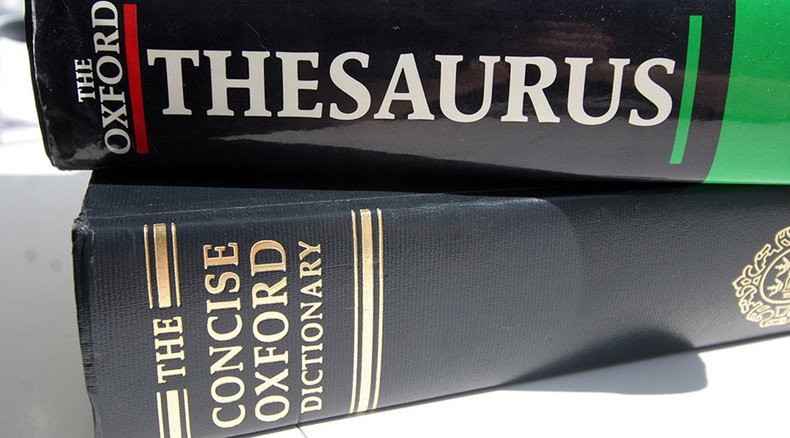From ‘beer o’clock’ to Brexit: Oxford online dictionary gets hot & ‘hangry’ update

A horde of new words have entered the webpages of OxfordDictionaries.com, ranging from Grexit to ‘brainfart.’ A special theme of the latest slang update was food.
A quarterly addition to the free online dictionary was published on Thursday. It included both words that concern recent news and events, and some “fanciful” expressions relating to food and drink, the dictionary’s blog reports.
From mic drops to manspreading: new words in http://t.co/cARPCJUHjc: http://t.co/jB7rp2nCccpic.twitter.com/J4yTt606N7
— Oxford Dictionaries (@OxfordWords) August 26, 2015The word “manspreading” has joined last year’s “mansplain.” The dictionary says it refers to gentlemen who prefer to enjoy their journeys on public transport by adopting “a sitting position with his legs wide apart, in such a way as to encroach on an adjacent seat or seats.”
READ MORE: New French Scrabble champion doesn’t speak French
The awkward “brain fart” could be described as a “temporary mental lapse or failure to reason correctly.” And a “manic pixie dream girl” is a type of character borrowed from the screen.
As usual, there are innovations contrived from funny word combinations such as “hangry.” It unites “hunger” and “anger,” describing the feeling of irritation deriving from an empty stomach.
“In previous centuries dictionaries tended to contain lists of words that their writers thought might be useful, even if there was no evidence that anyone had ever actually used these words. This is not the case today,” the team of language specialists wrote.
“New terms have to be recorded in a print or online source before they can be considered: it’s not enough just to hear them in conversation or on television, although we do analyse material from Internet message boards and TV scripts.”
READ MORE: Speechless: Emoji is UK’s fastest-growing language
For those who have long forgotten (or never heard of) the traditional British five o’clock, the dictionary keepers suggest such word combinations such as “wine o’clock” and “beer o’clock.” The terms are supposed to mark the time when one can start drinking.
#Hangry is currently winning our poll for favourite from the #newwords – what's yours? http://t.co/jB7rp2nCccpic.twitter.com/BN9IF3cK6N
— Oxford Dictionaries (@OxfordWords) August 27, 2015English speakers who have followed the news recently won’t be surprised by such colloquial expressions as “Grexit” (for Greece’s hypothetical exit from the eurozone) and the less common “Brexit” (the possibility of Britain leaving the EU).












